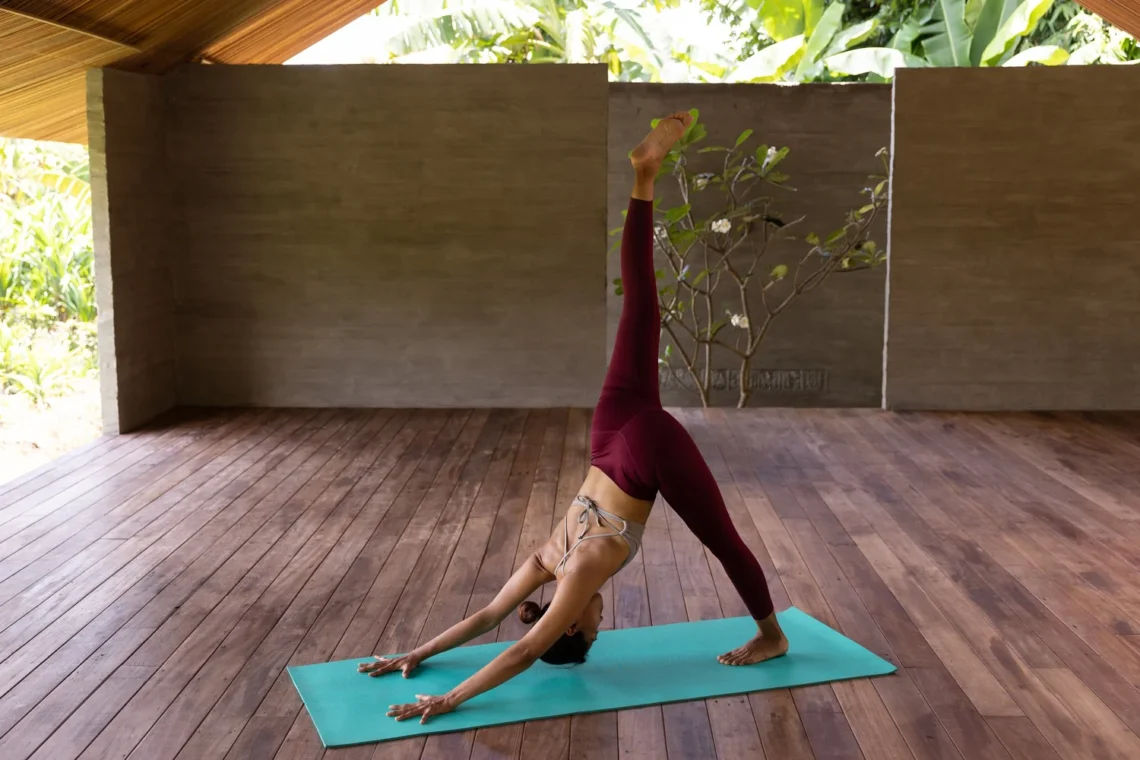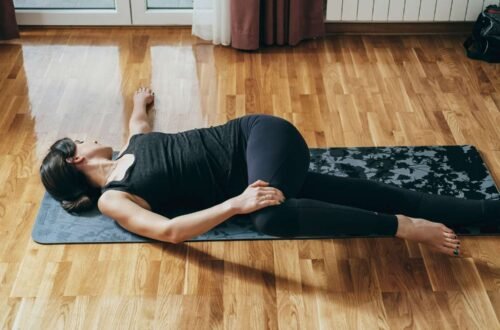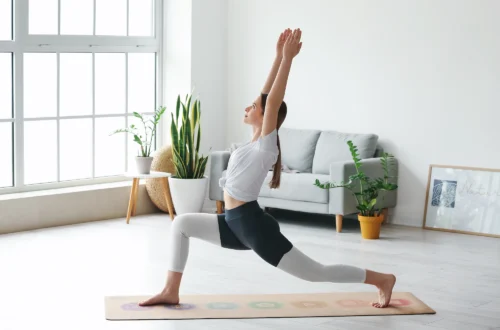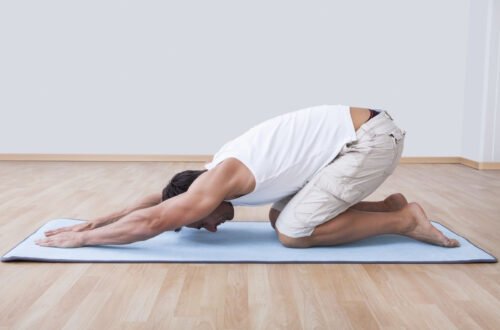What Is Hatha Yoga?
Hatha yoga, derived from the Sanskrit words “ha” (sun) and “tha” (moon), is a practice that seeks to balance opposing forces within the body and mind. It’s a holistic system combining physical postures (asanas), breathing techniques (pranayama), and meditation to promote overall well-being. Unlike fast-paced yoga styles, Hatha emphasizes slow, deliberate movements, making it accessible to beginners and seasoned practitioners alike. Its roots trace back to ancient India, with texts like the Hatha Yoga Pradipika shaping its modern practice.
Why Hatha Yoga Stands Out
Hatha yoga’s appeal lies in its practicality and accessibility. Unlike more vigorous styles like Vinyasa or Ashtanga, Hatha focuses on alignment and breath, offering a gentle yet effective way to nurture the body and mind. It’s like a warm conversation with an old friend—comforting, grounding, and deeply personal. Whether you’re a stressed-out professional or a retiree seeking calm, Hatha meets you where you are, making it a versatile practice for all ages and fitness levels.
A Personal Journey into Hatha Yoga
A few years ago, I found myself overwhelmed by work deadlines and a chaotic schedule. A friend suggested Hatha yoga, and though skeptical, I joined a local class. The slow pace felt foreign at first, but holding poses like Mountain Pose while syncing my breath brought a surprising sense of calm. Over time, I noticed not just physical improvements but a newfound ability to handle stress with grace. This personal shift inspired me to dive deeper into Hatha’s benefits, which I’ll share with you here.
Physical Benefits of Hatha Yoga
Hatha yoga is a powerhouse for physical health, offering benefits backed by science and centuries of practice. It’s not about becoming a human pretzel; it’s about moving mindfully to enhance your body’s strength, flexibility, and balance. Regular practice can transform how you feel in your own skin, making daily tasks easier and more enjoyable. Let’s explore the key physical benefits that make Hatha a go-to practice for wellness enthusiasts.
Improved Flexibility
Hatha yoga gently stretches muscles and connective tissues, increasing your range of motion over time. Poses like Downward-Facing Dog and Child’s Pose target tight areas like hamstrings and lower back. A 2021 meta-analysis found that regular yoga practitioners saw significant improvements in joint mobility, especially in seniors. This flexibility translates to easier movements in daily life, from bending to tie your shoes to reaching for that top shelf.
Enhanced Strength
Don’t let Hatha’s gentle nature fool you—it builds serious strength. Holding poses like Warrior I or Plank engages multiple muscle groups, particularly the core, legs, and upper body. Research shows that practicing Hatha twice a week can boost muscular endurance, making it a fantastic low-impact strength workout. It’s like lifting weights without the gym intimidation, sculpting your body while keeping things serene.
Better Posture and Alignment
Hatha’s focus on alignment helps correct posture, reducing strain on your back, neck, and joints. Poses like Mountain Pose teach you to stand tall, while Cobra Pose opens the chest to counter slouching. Over time, this awareness carries into daily life, making you stand and sit with confidence. Improved posture not only looks good but also prevents chronic pain, as noted in studies on yoga’s impact on back health.
Pain Relief and Management
For those dealing with chronic pain, Hatha yoga can be a game-changer. Its gentle movements and focus on breath help alleviate conditions like lower back pain and arthritis. A recent study from Cleveland Clinic showed that virtual Hatha yoga sessions reduced chronic low back pain scores significantly in just 12 weeks. By promoting circulation and reducing tension, Hatha offers a natural complement to traditional pain management.
Table: Physical Benefits of Hatha Yoga
| Benefit | How It Helps | Key Poses |
|---|---|---|
| Flexibility | Increases range of motion, eases daily movements | Downward Dog, Child’s Pose |
| Strength | Builds muscular endurance, engages core and limbs | Warrior I, Plank |
| Posture | Improves alignment, reduces strain on spine and joints | Mountain Pose, Cobra Pose |
| Pain Relief | Reduces chronic pain, supports circulation and relaxation | Cat-Cow, Seated Forward Bend |
Mental and Emotional Benefits
Hatha yoga isn’t just about the body—it’s a balm for the mind and soul. In a world that feels like it’s always on fast-forward, Hatha offers a pause button, helping you find clarity and emotional balance. Through mindful movement and breath, it creates a space to process emotions and quiet mental chatter. Here’s how Hatha yoga nurtures your mental and emotional well-being.
Stress Reduction
Hatha’s slow pace and deep breathing activate the parasympathetic nervous system, lowering cortisol levels and promoting relaxation. A 2021 study found that regular Hatha practice significantly reduced stress and anxiety, with participants reporting improved mood. Imagine it as a mini-vacation for your mind, where each breath melts away the day’s worries.
Enhanced Mental Clarity
Focusing on breath and alignment during Hatha practice sharpens your concentration. As you move through poses like Tree Pose, distractions fade, and you’re fully present. This mindfulness spills over into daily life, helping you tackle tasks with a clear head. Research supports that Hatha enhances cognitive function, making it a mental workout as much as a physical one.
Emotional Resilience
Hatha yoga creates a safe space for emotional exploration. Poses like Child’s Pose encourage introspection, while breathwork helps you navigate feelings without judgment. Practitioners often report greater emotional balance, with studies showing Hatha’s effectiveness in reducing symptoms of depression and PTSD. It’s like having a therapist in the form of a yoga mat, guiding you toward inner peace.
Pros and Cons of Hatha Yoga for Mental Health
Pros:
- Reduces stress and anxiety through breathwork and mindfulness.
- Enhances focus and mental clarity, improving productivity.
- Supports emotional resilience, helping manage depression and PTSD.
Cons:
- Requires consistent practice to see significant mental health benefits.
- May not suit those seeking high-energy, fast-paced workouts.
- Beginners might feel self-conscious in group classes.
Spiritual Benefits of Hatha Yoga
For many, Hatha yoga is more than a physical or mental practice—it’s a spiritual journey. Rooted in ancient Indian traditions, it fosters a deeper connection to oneself and the universe. Whether you’re spiritual or not, Hatha’s meditative aspects can bring a sense of purpose and peace. Let’s dive into how this practice nurtures your spirit.
Deeper Self-Awareness
Hatha yoga encourages you to tune into your body and mind, fostering self-discovery. Through meditation and poses like Savasana, you connect with your inner self, uncovering what truly matters. This heightened awareness can lead to a more authentic life, as noted in yoga philosophy texts like the Hatha Yoga Pradipika. It’s like peeling back layers to find your true essence.
Connection to Something Greater
The practice of Hatha often includes chanting or meditation, which can feel like a bridge to something larger—whether you call it the universe, nature, or a higher power. The sacred syllable “Om” encapsulates this connection, symbolizing unity. Practitioners report a sense of spiritual community, enhancing their journey of growth. It’s a reminder that you’re part of something bigger, even in a solo practice.
Hatha Yoga During Challenging Times
Hatha yoga’s benefits shine during tough moments, like the COVID-19 pandemic. Its breathing techniques may support pulmonary health, while its stress-reducing effects helped many cope with isolation. A 2023 study highlighted Hatha’s role in maintaining mental well-being during lockdowns, offering purpose and calm. It’s like a steady anchor in life’s storms, keeping you grounded when the world feels chaotic.
Hatha Yoga and Immunity
Some studies suggest that Hatha yoga may boost immunity by reducing stress, which weakens the immune system. While not a cure, regular practice could lower your risk of illness. Research is ongoing, but the link between yoga and improved immune function is promising. Think of it as giving your body’s defenses a gentle nudge to stay strong.
How to Start Practicing Hatha Yoga
Ready to give Hatha yoga a try? It’s easier than you think, and you don’t need to be flexible or “zen” to start. Whether you’re joining a class or practicing at home, Hatha is welcoming to all. Here’s how to begin your journey and make the most of this transformative practice.
Finding the Right Class or Instructor
Look for beginner-friendly Hatha yoga classes at local studios, community centers, or online platforms like Yoga International or Glo. A certified instructor can guide you through proper alignment and breathing techniques. Check reviews or ask for recommendations to find a teacher who resonates with you. Many studios offer free trial classes, so you can test the waters.
Creating a Home Practice Space
You don’t need a fancy setup—just a yoga mat, comfortable clothes, and a quiet space. Clear a corner of your living room or bedroom, free of distractions. Add calming elements like a candle or soft music if that’s your vibe. Online videos on YouTube or apps like Down Dog can guide your home practice, making it accessible and budget-friendly.
Best Tools for Hatha Yoga
To enhance your practice, consider these essentials:
- Yoga Mat: A non-slip mat like the Gaiam Yoga Mat provides stability.
- Yoga Blocks: Blocks like Trideer Yoga Blocks support poses and deepen stretches.
- Strap: A stretching strap helps with flexibility, especially for beginners.
- Comfortable Clothing: Breathable, stretchy attire ensures ease of movement.
Comparison: In-Person vs. Online Hatha Yoga Classes
| Aspect | In-Person Classes | Online Classes |
|---|---|---|
| Interaction | Direct feedback from instructors | Limited interaction, but convenient |
| Cost | Often pricier ($10–$20 per class) | Affordable (free YouTube videos or $5–$15/month) |
| Flexibility | Fixed schedules | Practice anytime, anywhere |
| Community | Strong sense of group connection | Virtual communities via forums or live classes |
People Also Ask (PAA) Section
What are the main benefits of Hatha yoga?
Hatha yoga improves flexibility, strength, and posture while reducing stress and enhancing mental clarity. It also fosters emotional resilience and spiritual connection, making it a holistic practice for body and mind. Regular practice can alleviate chronic pain and support overall well-being.
Is Hatha yoga good for beginners?
Absolutely! Hatha’s slow pace and focus on alignment make it ideal for beginners. Poses are accessible, and instructors often provide modifications. Start with basic poses like Mountain Pose or Child’s Pose to build confidence.
How often should I practice Hatha yoga?
Practicing 2–3 times per week for 20–60 minutes can yield noticeable benefits. Daily short sessions (10–15 minutes) are great for consistency. Listen to your body and adjust based on your schedule and energy levels.
Can Hatha yoga help with anxiety?
Yes, Hatha yoga’s breathing techniques and mindfulness reduce anxiety by calming the nervous system. Studies show it lowers cortisol levels and improves mood, making it an effective tool for managing stress and anxiety.
FAQ Section
Is Hatha yoga suitable for all ages?
Yes, Hatha yoga is adaptable for all ages, from kids to seniors. Modifications make poses accessible, and its gentle nature suits varying fitness levels. Always consult a doctor if you have health concerns before starting.
Do I need special equipment for Hatha yoga?
A yoga mat is the main essential, but blocks, straps, and a quiet space enhance your practice. These tools are affordable and widely available online or at fitness stores.
How long does it take to see results from Hatha yoga?
Results vary, but many notice improved flexibility and reduced stress within 4–6 weeks of regular practice (2–3 times per week). Mental clarity and strength gains may take longer but are worth the effort.
Can Hatha yoga replace other workouts?
Hatha yoga complements other workouts but may not fully replace high-intensity cardio or strength training. It builds strength and flexibility while promoting recovery, making it a great addition to a balanced fitness routine.
Where can I find free Hatha yoga resources?
Free resources are available on YouTube (channels like Yoga With Adriene) or apps like Down Dog. Local libraries or community centers may offer free classes, and some studios provide trial sessions.
Tips for Maximizing Your Hatha Yoga Practice
- Start Slow: Begin with 10–20 minute sessions to avoid overwhelm.
- Focus on Breath: Sync your movements with deep, steady breaths for maximum relaxation.
- Be Consistent: Even short daily practices build momentum over time.
- Listen to Your Body: Avoid pushing into pain; modify poses as needed.
- Join a Community: Connect with others through classes or online forums for motivation.
Conclusion
Hatha yoga is more than a workout—it’s a journey toward balance, strength, and peace. From improving flexibility and posture to reducing stress and fostering spiritual growth, its benefits are profound and well-documented. Whether you’re rolling out a mat at home or joining a studio class, Hatha offers a path to a healthier, happier you. Start today, take a deep breath, and let Hatha yoga guide you to a more vibrant life. For more resources, check out Yoga International or explore local studios near you.





